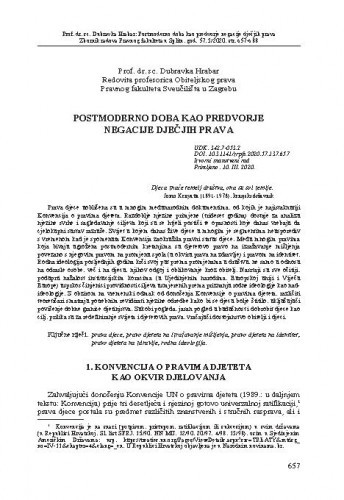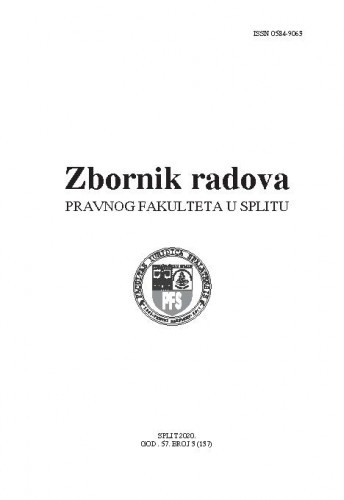Prava djece uobličena su u mnogim međunarodnim dokumentima, od kojih je najistaknutiji Konvencija o pravima djeteta. Razdoblje njezine primjene (trideset godina) dostaje za analizu njezine svrhe i sagledavanje ciljeva koji su se htjeli postići te opasnosti koje danas vrebaju da cjelokupni sustav razruše. Svijet u kojem danas žive djece u mnogim je segmentima neusporediv s vremenom kad je spomenuta Konvencija zaokružila pravni status djece. Među mnogim pravima koja bivaju ugrožena postmodernim kretanjima su djetetovo pravo na izražavanje mišljenja povezano s njegovim pravom na promjenu spola (u okviru prava na zdravlje) i pravom na identitet. Rodna ideologija posljednjih godina krči svoj put prema promjenama u društvu, ne samo u odnosu na odrasle osobe, već i na djecu, njihov odgoj i oblikovanje kroz obitelj. Nasrtaji su sve očitiji, poduprti nažalost institucijskim koracima (u Ujedinjenim narodima, Europskoj uniji i Vijeću Europe) usprkos činjenici providnosti ciljeva usmjerenih prema priznanju rodne ideologije kao nadideologije. S obzirom na vremenski odmak od donošenja Konvencije o pravima djeteta, različiti teoretičari smatraju potrebnim revidirati njezine odredbe kako bi se djecu bolje štitilo, uključujući povišenje dobne granice djetinjstva. Sukobi pogleda, jasan pogled u budućnost i dobrobit djece kao cilj, prilika su za redefiniranje svijeta i djetetovih prava, vraćajući dostojanstvo obitelji i djeci.; Children's rights have been entrenched into many international documents. The most obvious is the Convention on the Rights of the Child. The period of its application (thirty years) warrants analysis of its purpose and observing the aims which it wanted to achieve as well as the dangers lurking today to destroy the overall system. The world children live in today is in many segments incomparable with the times in which the afore mentioned Convention concluded the legal status of children. Among the many rights which were endangered by postmodern movements are children's rights to freedom of expression which are linked to their right to change genders (within the framework of health rights) and the right to identity. Gender ideology over the last few years has opened up the way towards societal changes, not only in relation to adults, but also to children, their upbringing and family formation. Assaults to this are more and more evident and are unfortunately supported by steps by institutions (in the United Nations, European Union and Council of Europe) despite the fact of transparency of goals aimed at recognising gender ideology as a super ideology. Given the time elapsed from the enactment of the Convention on Children's Rights, various theoreticians believe it is necessary to revise its provisions in order to better protect children including raising the age limit of childhood. Conflicting views, a clear outlook on the future and wellbeing of children as an aim are chances to redefine the world and children's rights, reinstating the dignity of the family and children.
Sažetak

 Zbornik radova Pravnog fakulteta u Splitu : 57, 3(2020) / glavni i odgovorni urednik Arsen Bačić.
Zbornik radova Pravnog fakulteta u Splitu : 57, 3(2020) / glavni i odgovorni urednik Arsen Bačić.